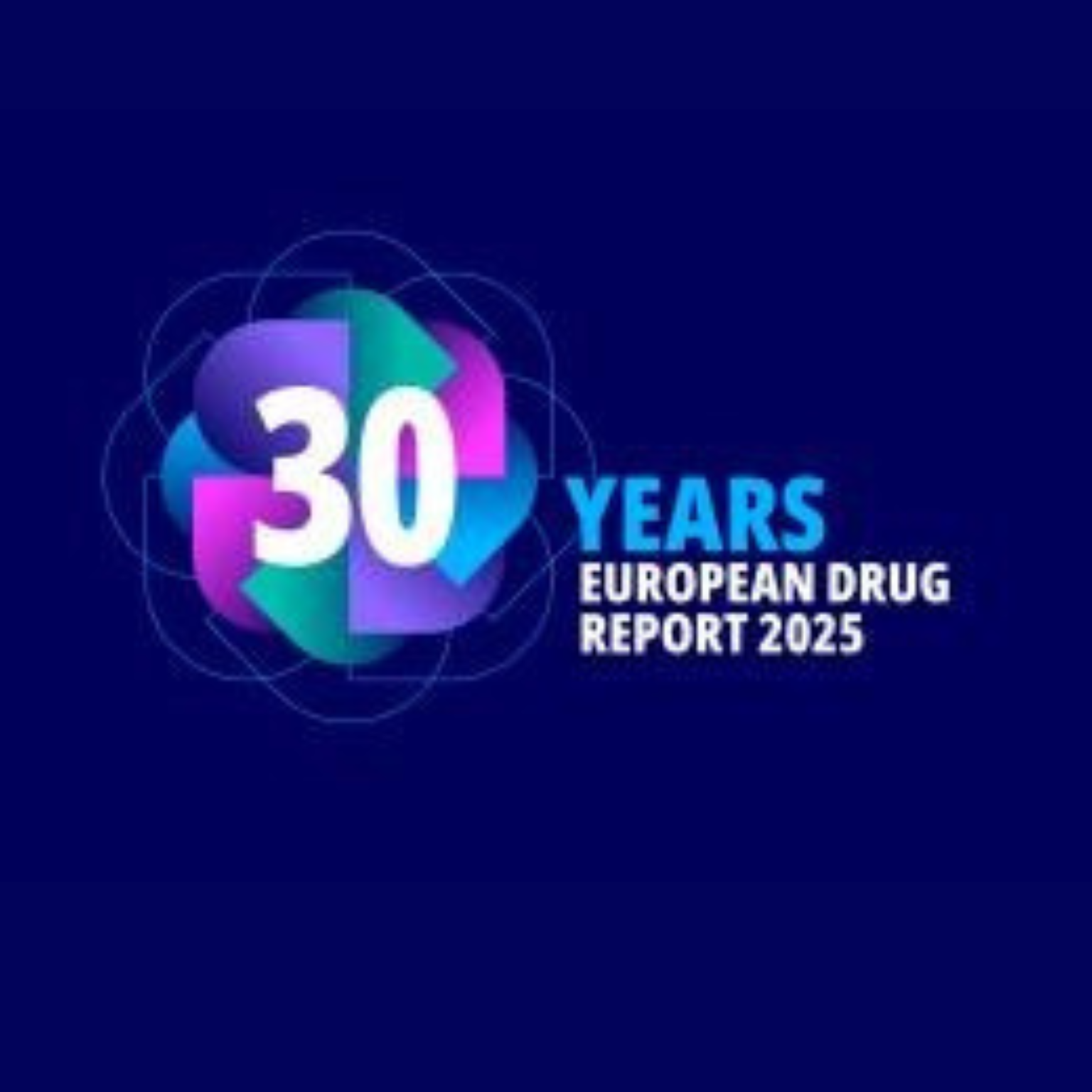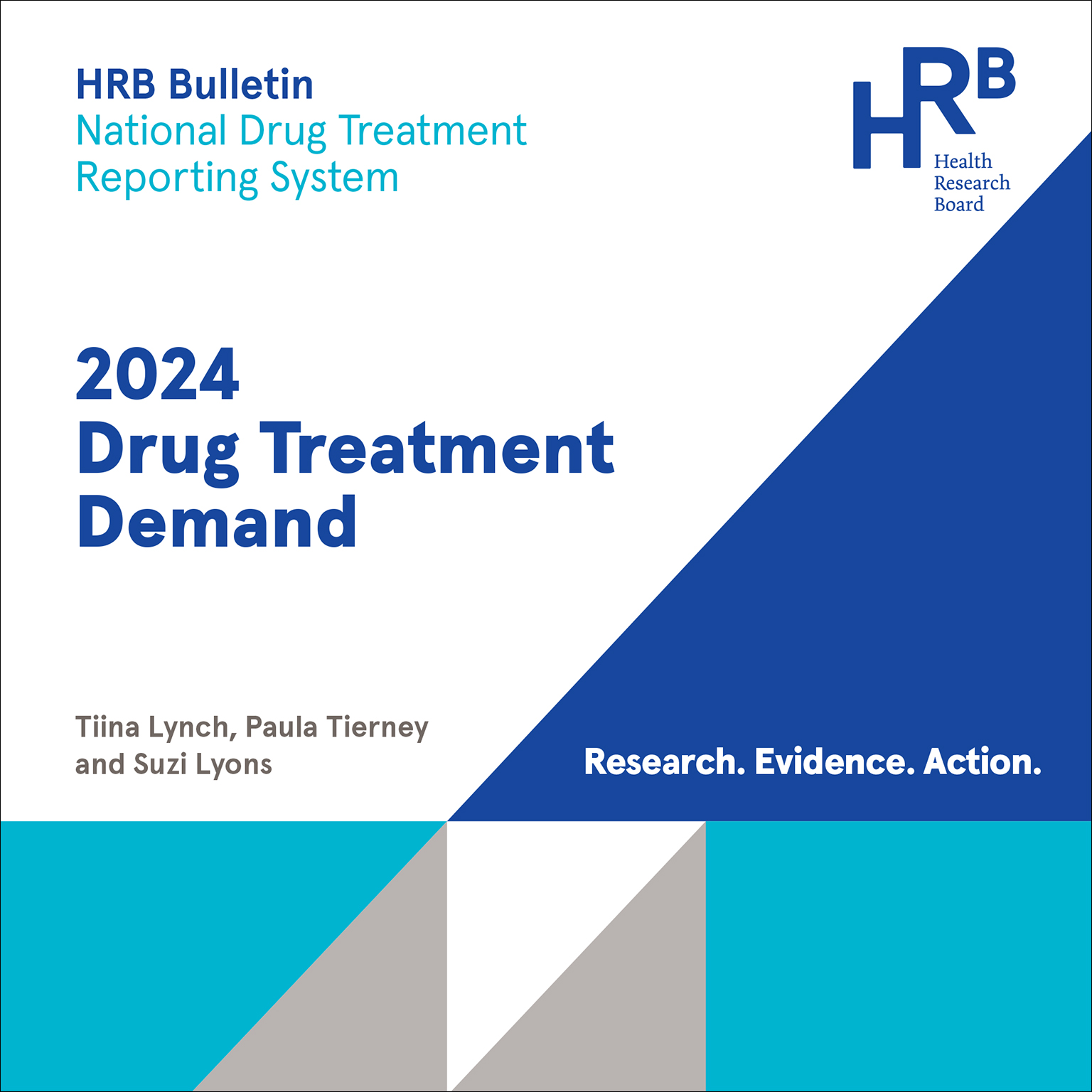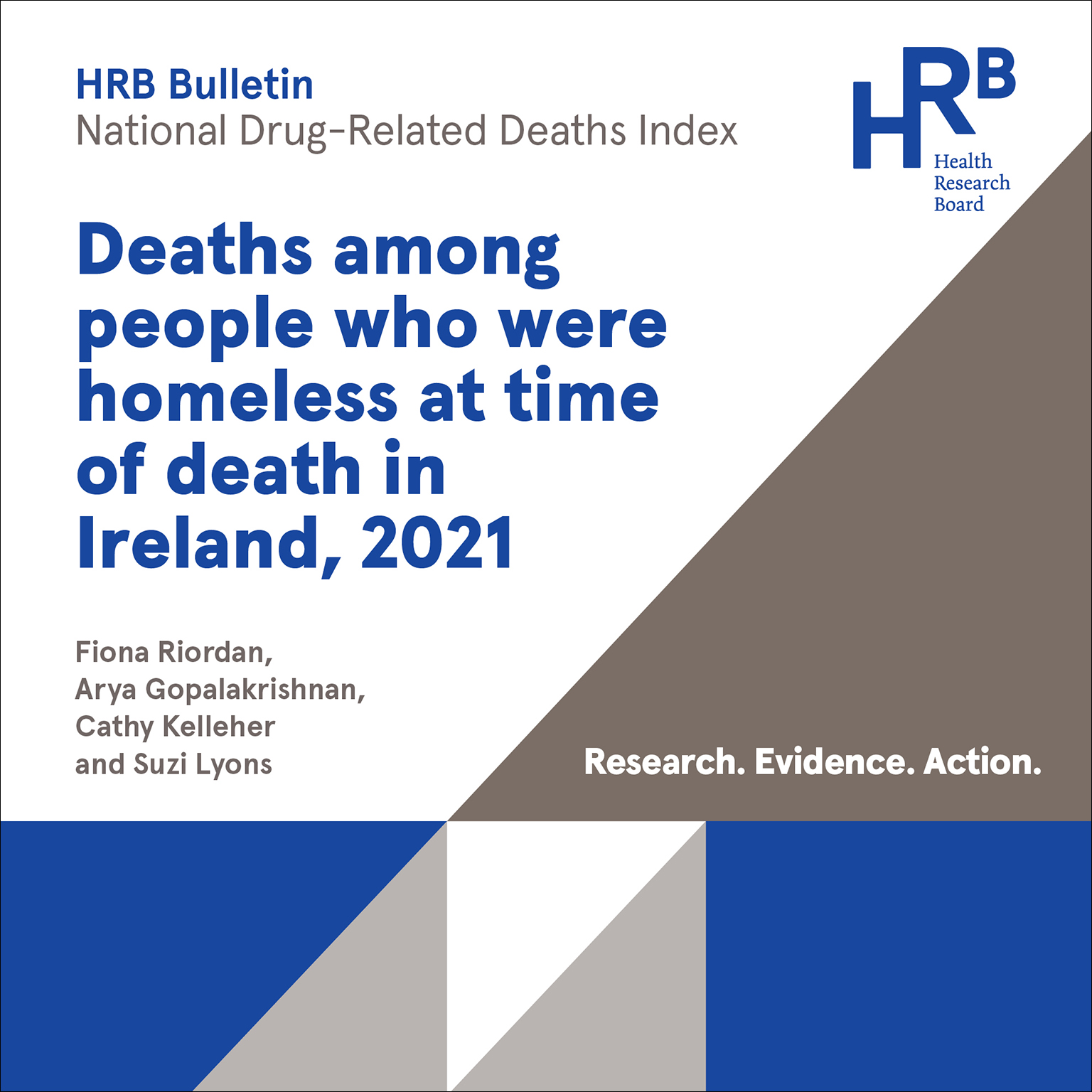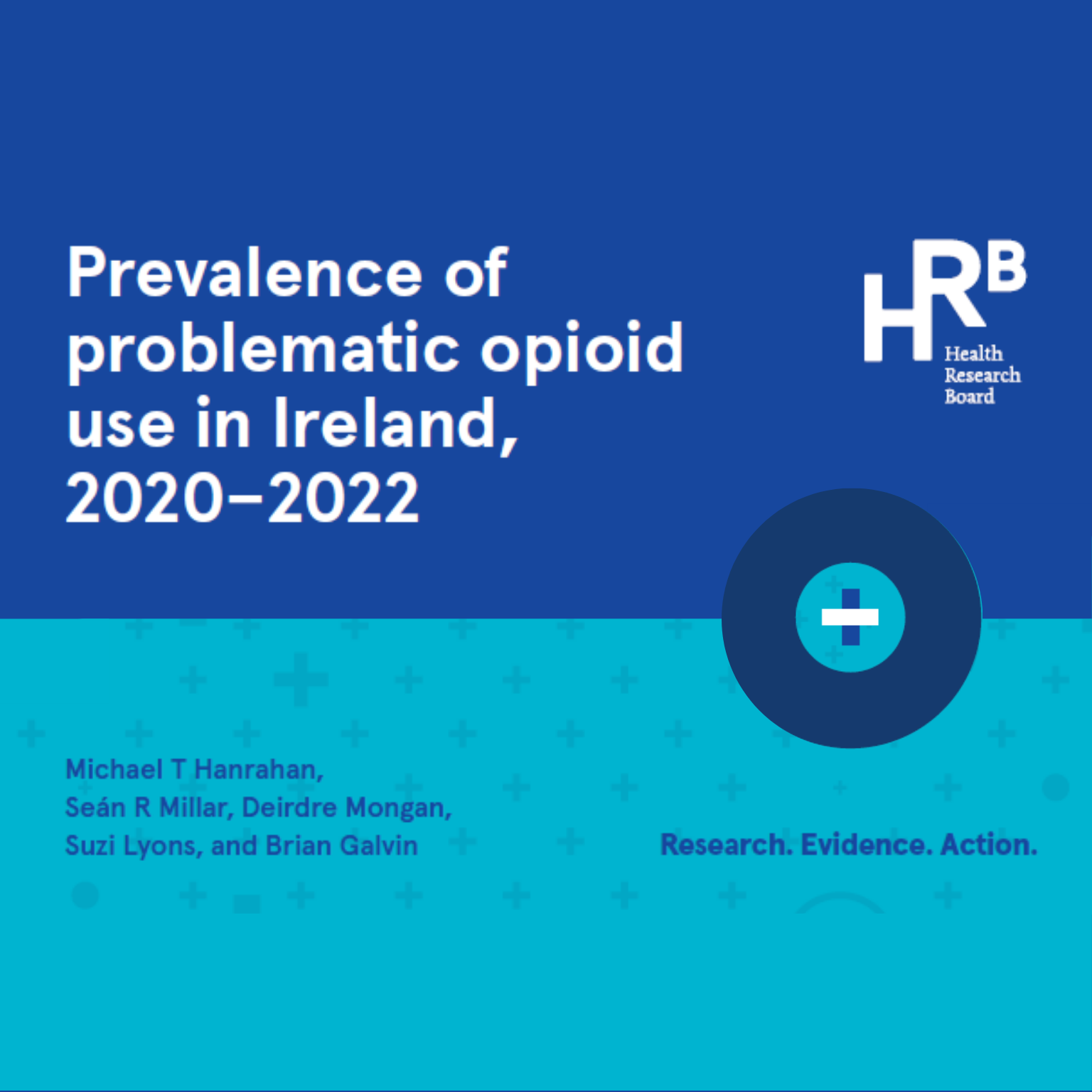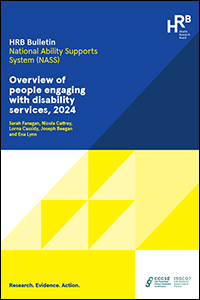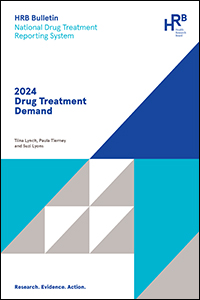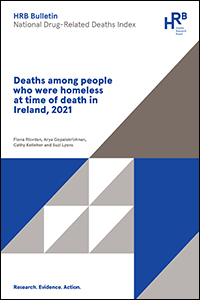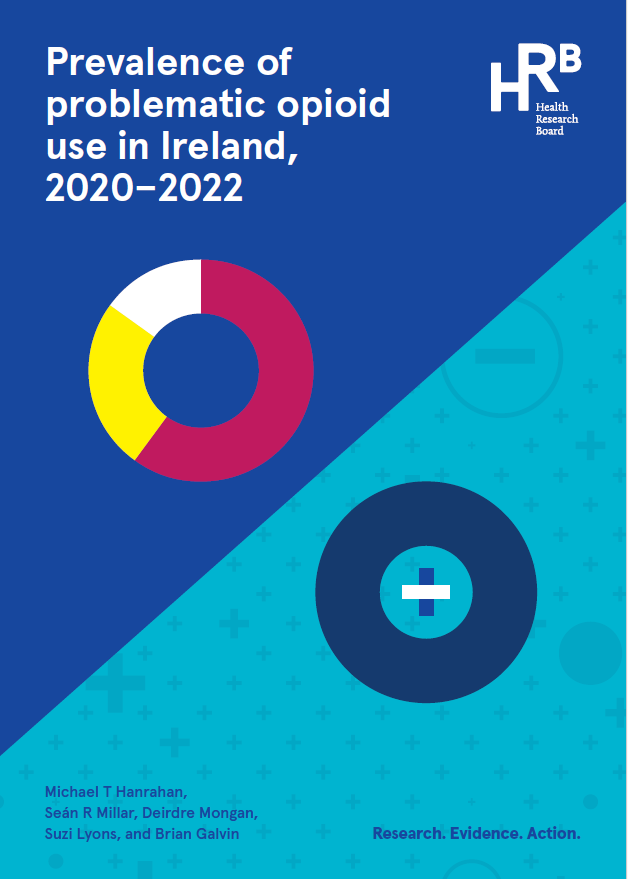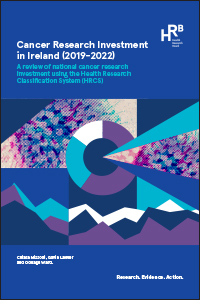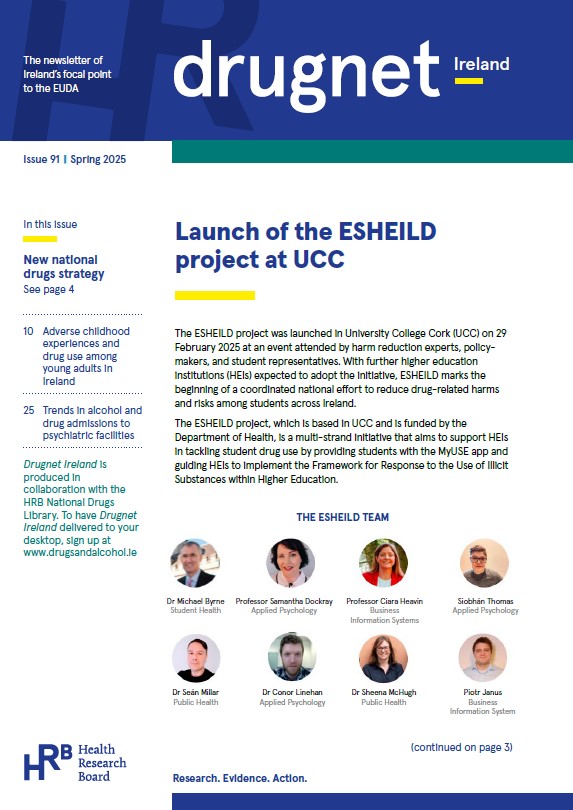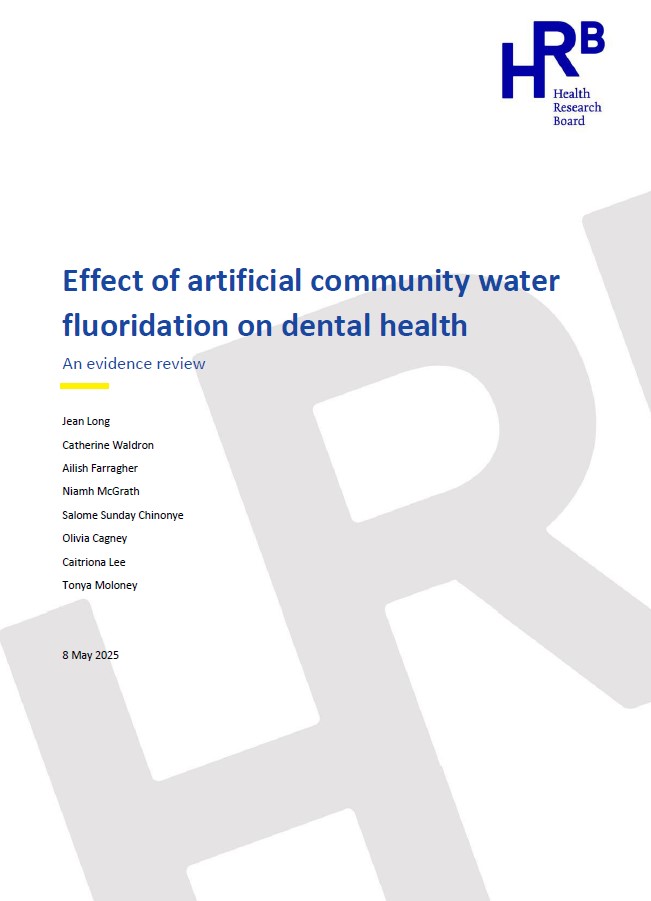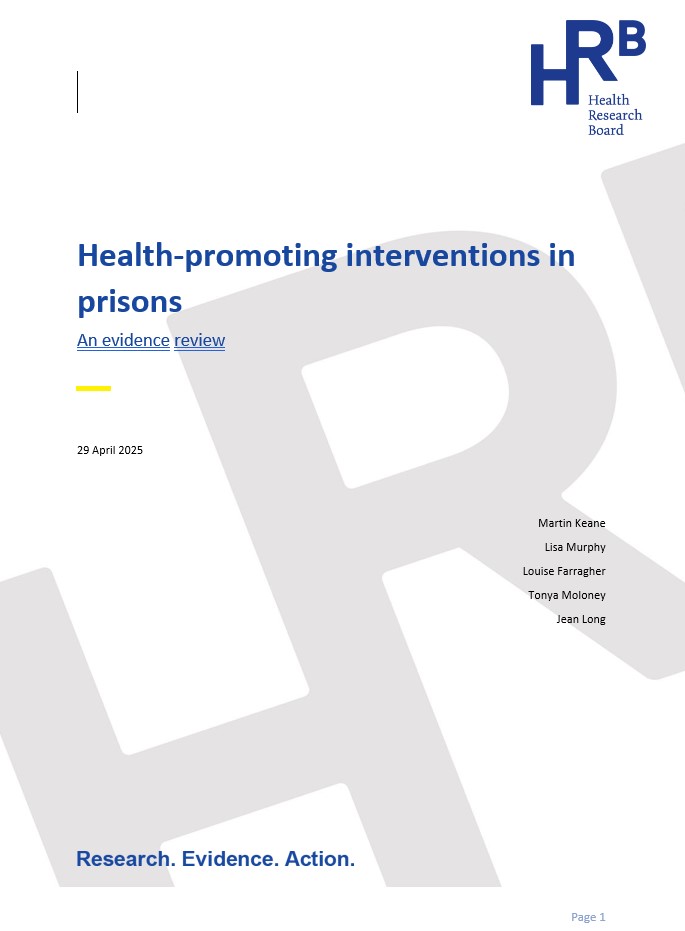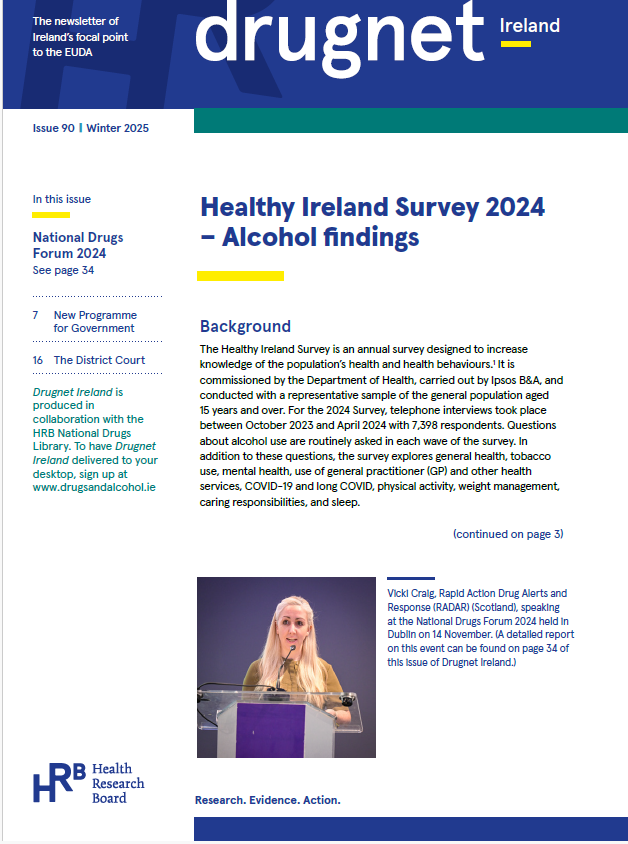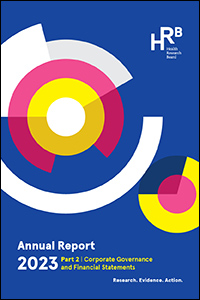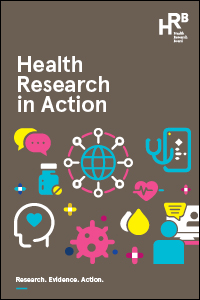Health Research Board
Publications
All publicationsDiscover evidence reviews to inform policy, or reports from our health information systems. The most recent strategy, outcome and evaluation reports provide great insight into our goals and objectives and how we are delivering on them.
Research Strategy and Funding
The HRB is Ireland's primary health and social care research funding agency. We support research to inform health and social care practice and policy, which improves people’s health and contributes to economic growth.
-
Research Funding Opportunities
We invest more than €50M each year in health and social care research. We also work with other partners to co-fund research in areas of common interest. Find out more about all current and upcoming funding opportunities with guidance on how to apply.
-
Grant Management
It is essential that the research we fund with public money is conducted and managed responsibly, ethically and in line with regulations, legislation and best practice. Read our grant terms and conditions and the policies we expect HRB grant holders to adhere to.
-
Investments and Impacts
We continually monitor and evaluate our work and communicate about what we fund, along with the outcomes and impacts of these investments. Review details of grants that we funded in the last 10 years and explore case studies from across our research portfolio.
-
Responsible Research Assessment
Carefully designed research assessment practices are key to making fair decisions on the quality and potential impact of funding applications. Read about our review and assessment practices and how we work with others to maximise the quality and impact of research.
National Health Information Systems
In the HRB there are four National Health Information Systems collecting data on disability, mental health, addiction treatment and drug and alcohol death.
-
Disability service use and need NASS
National Ability Supports System collects information on the specialised services used and needed by people with a disability. The information is used to inform policy and service planning and for research.
Read more about NASS -
Inpatient Mental health Services NPIRS
National Psychiatric Inpatient Reporting System collects information on admissions to and discharges from inpatient mental health centres to inform policy and service planning and for research.
Read more about NPIRS -
Addiction treatment NDTRS
National Drug Treatment Reporting System collects information on addiction treatment that is used for policy, service planning and for research
Read more about NDTRS -
Drug and alcohol deaths NDRDI
National Drug-Related Deaths Index (NDRDI) we gather information on alcohol and drug-related deaths that is used for policy, service planning and for research to help reduce premature mortality.
Read more about NDRDI
Research regulation, national ethics and consent
We work to ensure that health research is supported to meet the highest standards of governance, quality and ethics, through the National Office that supports National Research Ethics Committees (NRECs) and Secretariat to the Health Research Consent Declaration Committee (HRCDC).
-
HRCDC
The Health Research Regulations in Ireland provide safeguards for the use of people’s personal data in research and consent is one such safeguard. The Secretariat supports a committee who can make a consent declaration when the public interest of doing the research outweighs the need for consent.
Read about HRCDC -
NRECs
The National Office supports committees who deliver a single national ethics opinion for research in the areas of clinical trials, medical devices, in vitro diagnostics and the national COVID-19 biobank, to ensure the safety, dignity and well-being of research participants.
Read about National Office
Careers
New Openings at the HRB
Our goal as an organisation is to be the best in every way. Our culture of organisational excellence is based on shared values that attract, support and retain the best people.



